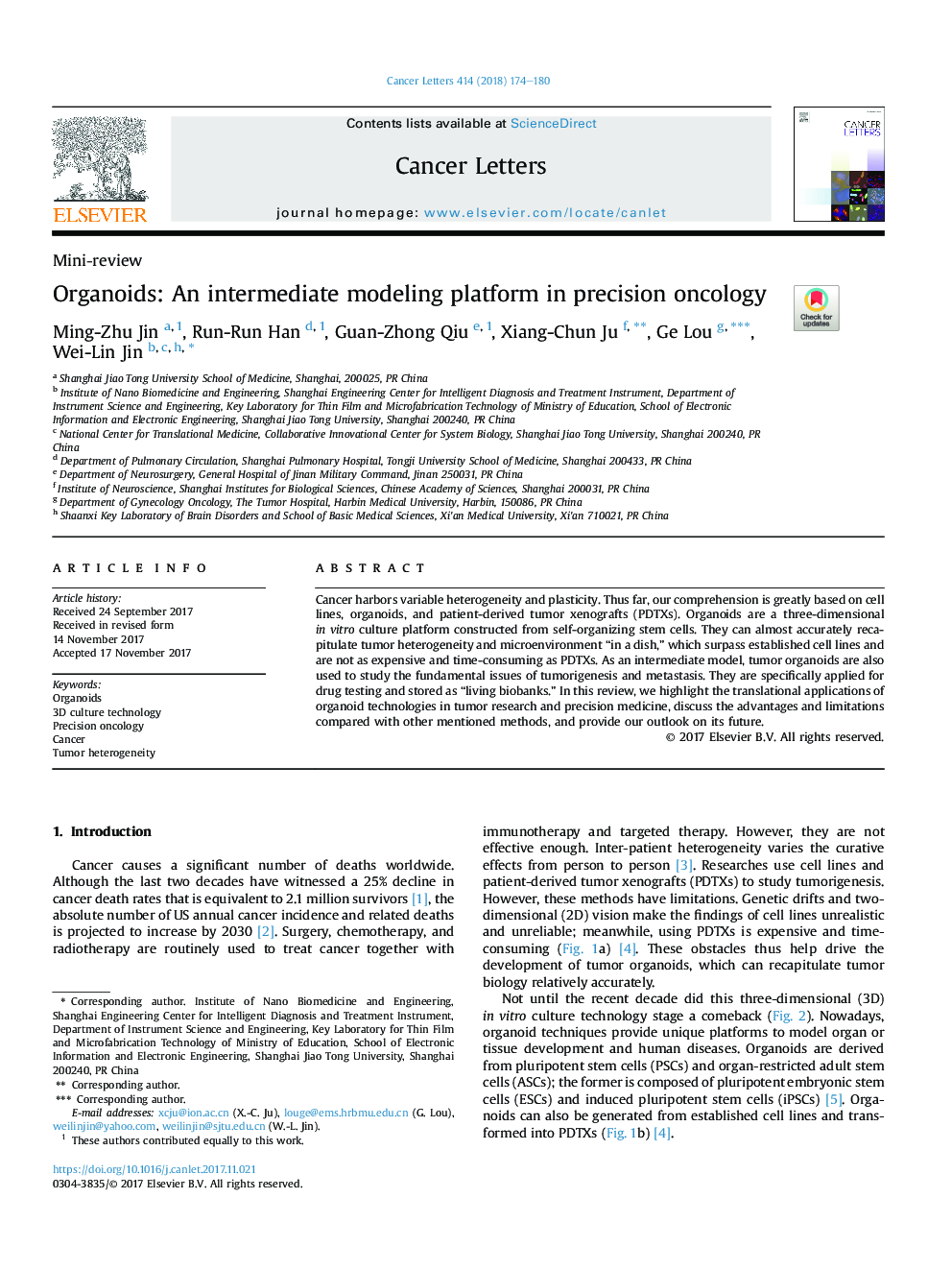| Article ID | Journal | Published Year | Pages | File Type |
|---|---|---|---|---|
| 8434963 | Cancer Letters | 2018 | 7 Pages |
Abstract
Cancer harbors variable heterogeneity and plasticity. Thus far, our comprehension is greatly based on cell lines, organoids, and patient-derived tumor xenografts (PDTXs). Organoids are a three-dimensional in vitro culture platform constructed from self-organizing stem cells. They can almost accurately recapitulate tumor heterogeneity and microenvironment “in a dish,” which surpass established cell lines and are not as expensive and time-consuming as PDTXs. As an intermediate model, tumor organoids are also used to study the fundamental issues of tumorigenesis and metastasis. They are specifically applied for drug testing and stored as “living biobanks.” In this review, we highlight the translational applications of organoid technologies in tumor research and precision medicine, discuss the advantages and limitations compared with other mentioned methods, and provide our outlook on its future.
Related Topics
Life Sciences
Biochemistry, Genetics and Molecular Biology
Cancer Research
Authors
Ming-Zhu Jin, Run-Run Han, Guan-Zhong Qiu, Xiang-Chun Ju, Ge Lou, Wei-Lin Jin,
